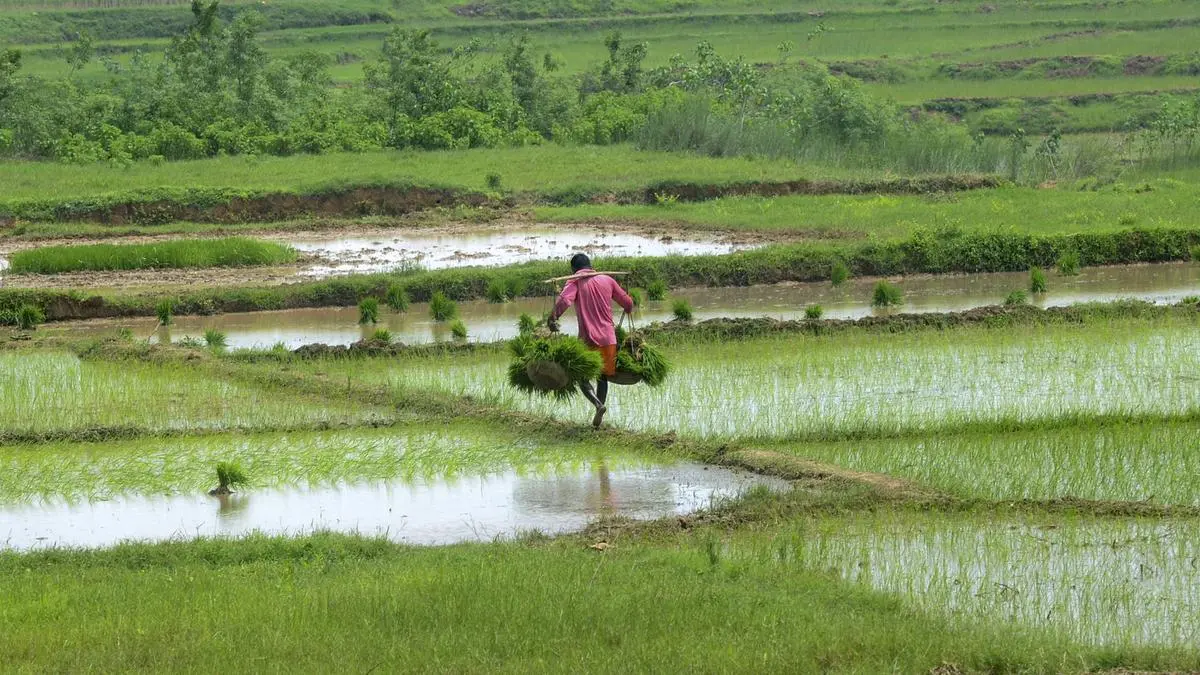Exporters are hopeful that CETA will help reduce landed cost of Indian products in the UK market, boosting export volume and enhance income of farmers.
The Comprehensive Economic and Trade Agreement (CETA) between the UK and India is a win for Indian farmers as 95 per cent of agri items will have zero duty when imported by the UK, where its agri market is estimated to be worth $ 37.5 billion. Besides, sensitive sectors such as dairy, edible oils and apples have been kept out of CETA’s purview.
India had exported 2.14 lakh tonnes (It) of rice worth $215.34 million in 2024-25 which included 1.84 lt (worth $194.37 million) of Basmati rice and 30,460 tonnes (worth $20.97 million) of non-Basmati rice.
Out of $657.03 million of agri products (27 categories handled by Apeda) excluding spices, seafood, tea, coffee to UK and Ireland in 2024-25, Basmati rice had the largest share. But all processed food products including prepared cereals, processed fruits, vegetables, juices, nuts put together had a bigger share of $237.66 million.
In total agriculture products, the India’s exports to UK stands at $37.52 billion but import from UK is only $811 million.
Tariff concession has not been allowed on oats as well in the FTA, the government said. With regard to the benefits for the blue economy, the CETA provides for zero-duty to shrimp, tuna, fishmeal, and feeds. These are currently taxed in the range of 4.2-8.5 per cent.
On the other hand, Indian staples such as turmeric, pepper, cardamom; processed goods such as mango pulp, pickles, and pulses; and marine products such as shrimp and tuna will enjoy duty-free access in the UK market, potentially will boost India’s agri exports 20 per cent over the next three years and helping the country to move towards $100 billion target.
There was a major gain achieved in CETA in the food processing sector as most of those products that earlier faced duties up to 70 per cent will now enjoy zero duty. In marine and animal products, the duties will come down to zero from up to 20 per cent.
India’s farmers are poised to be the biggest winners of the FTA, which unlocks premium UK markets for their produce, matching or exceeding the benefits already enjoyed by exporters from Germany, the Netherlands, and other EU nations, the commerce ministry said.
More than 95 per cent of agricultural and processed food tariff lines will attract zero duties on fruits, vegetables, cereals; pickles, spice mixes, fruit pulps; and ready-to-eat meals and processed foods. Exporters are hopeful that CETA will help reduce landed cost of Indian products in the UK market, boosting export volume and enhance income of farmers.
India’s share in UK’s $5.4 billion marine import is only 2.25 per cent, which may see a jump in next few years.
Officials hope that it would also help India’s export of high-margin branded products such as coffee, spices, beverages, and processed food. Stating that the UK consumes 1.7 per cent of India’s coffee, the duty-free access will help instant coffee compete with Germany and Spain.
Indian tea exports to UK has 5.6 per cent share in the country’s total exports whereas in spices UK has 2.9 per cent share.
The major beneficiaries could be farmers of Maharashtra (grapes, onions), Gujarat (groundnut, cotton), Punjab and Haryana (basmati rice), Kerala (spices), and NE states (horticulture), sources said.
Published on July 24, 2025
